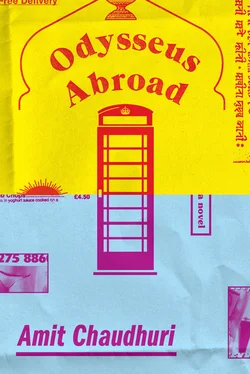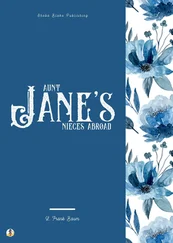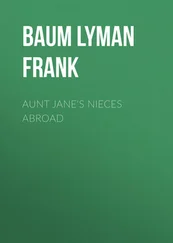She’d had her revenge for their constant tit for tat once the payphone incident occurred — that night when the Patels and Cynthia’s incongruously studious-looking brother Rahul had dislodged the BT coin box from the landing between the first and second floors and taken it to the attic, breathing heavily with exertion and laughter. Ananda had heard it all — it must have been past 1 a.m. — the rushed activity, the transitory out-of-place jingling; but he didn’t know what to think of it. Next morning, he saw the discoloured blank space where the coin box was. Walia arrived, hovered around Mandy’s door, and questioned her about what happened. Ananda, dully listening from upstairs, heard her say: “I think it was Ananda.” He was overcome: less disturbed than wounded — and, most importantly, made intensely and doubly to feel a foreigner. Every fibre of his being said, “What am I doing here? This is not my home,” though no words formed in his head. He heard Walia dismiss the accusation in a bland matter-of-fact way: “No, no, it wouldn’t be him , it must be the boys upstairs.” And Ananda felt the sense of vindication that only an eavesdropper and exile might feel, that a man he hardly knew, Walia, should still know him well enough to have made up his mind about him. When he related this conversation to his uncle later, he saw him pass, in a wave, through the same emotions, from disbelief to shock to a kind of scandalised but grateful relief. “Well, at least he has enough up there to know you’d never do something like that,” he muttered. Ananda was surprised that his uncle had this faith in him — he’d never let on earlier (Ananda knew his uncle cared for him, but he had no idea what he thought of him), probably because they were frequently bickering over the subject of relatives or literature, and also because what most interested his uncle was himself.
Shall I compare thee
Shall I compare thee to
Although the lines were incomplete, they kept ending on a question mark. He felt his inner voice rising docilely at the end. Confronting the day in Warren Street with the mug of tea in one hand, a breeze beneath the now one-quarter-raised window flicking his weightless kurta ends, he reflected again — as he had only recently — on the beauty and particularity of the word “summer.” It wasn’t a word that had previously interested him. In India, it was a dead word, spoken almost without reference to its meaning, and all its mutations and locations—“summery,” “a midsummer night’s dream”—were ready clichés that locked up experience. What summer itself was in India, or in its different regions, was still untapped, unaddressed in this colonial language. Only after coming to England had he discovered the beauty of the word. On reading the poem itself in Bombay in his school textbook, he’d decided it was stupid; silly, even. And who, in India, would compare someone to a summer’s day — except to insult the addressee? A near-imbecilic line.
Shall I compare thee to a summer’s day?
But, no; it was beautiful. He’d reread the sonnet, for his preparations for the Renaissance paper, and then, after reacting against it through its earlier associations, read it once again, allowing himself to understand it. The lines had begun to repeat themselves in his head, like a jingle in a commercial. The poet — what was he up to? He’d meant to extol his beloved — not by saying she was as good as a summer’s day, but better! Letting the wooden frame nestle his chin, Ananda daydreamed, studying Tandoor Mahal and its curtains.
Thou art more lovely and more temperate .
More lovely, more temperate! So the poet was dissing the summer’s day, then, in order to praise his beloved. Yet what apposite terms for this summer, as a season, or in its incarnation as a single day: “lovely,” with its suggestion of innocence and newborn qualities; “temperate,” indicating calm, modesty, and fortuitously echoing “temporal,” with its hint of the short-lived. “Lovely” carried in it the sense of the short-lived too; the loveliness of “lovely” was contingent on it not being eternal. And so the summer’s day was transient in comparison to the poet’s beloved, who’d continue to prosper and grow to “eternal lines” in the effing sonnet. To emphasise this, Shakespeare must diss the English spring and summer in the third and fourth lines again:
Rough winds do shake the darling buds of May ,
And summer’s lease hath all too short a date .
It was the fragility and the undependability of the English summer that Shakespeare was drawing the reader’s attention to — hoping, thereby, that the contrast would aggrandise his lover’s qualities. But, for Ananda, it was summer — by being contingent — that came to brief life on his rediscovery of the poem in London, and not the beloved, immobile and fixed in eternity; because the imagination is drawn — not by sympathy, but some perverse definition of delight — to the fragile, the animated, and the short-lived. In this unlikely manner, the near-imbecilic sonnet had been returning to him in the last four days.
A butterfly had settled on the upper window. It had closed its wings, simulating a leaf, or engendering a geometric angle, perfect as a shadow, but was now wavering and bending to one side — not out of any obedience to the breeze, but according to a whim. Almost nothing — but for this pane with faint blotches of mildew — separated it in its world outside (Warren Street) from the studio flat within, from where Ananda measured it, intrigued. All insects made him apprehensive. Where had this rarity come from? The principal danger of summer, he’d found, were bees. Almost every day one came in without invitation. He had to pretend he was unmoved by its floating, persistent exploration of the room, until, unable to cohabit with it an instant longer, his nerves already on edge, he’d have to, with an almost superhuman effort, quickly push the window up halfway, causing the house to tremble to its foundations, and then rally to chase it out with something appropriate — usually a copy of the Times or the Times Literary Supplement . The comedy and even the undeniable magic of that chase became clear to him the moment the bee had escaped, the room was empty but for him, and — like someone in a storm — he grappled with lowering the window again.
He saw now, suddenly, that the butterfly was gone — the street’s voyager; undertaking short, unsteady bursts of flight past Walia’s flats.
2 Telemachus and Nestor (and Manny-loss)
Stupidly, he’d set up a meeting with Nestor Davidson for midday. Some resistant part of him would rather have lolled about — masturbating occasionally, perhaps, though his penis was sore; or dipping into the Oxford Companion to Modern British Literature , to spy, once more, on cherished lines and phrases (most of them these days by Edward Thomas), to check if they still existed and possessed the same shock of surprise; or watching, agog, children’s TV— Postman Pat , whose English village of workaday encounters and visits was so much more preferable to the turbulent life of Noddy that Ananda had come to know as a child; then there was the man he’s begun to like even better — Mr. Benn.
These children’s stories were where craft and observation lay; qualities abnegated by the grown-up shows. Ananda loved the way Postman Pat’s van appeared, like a private revelation, muffled yet exact, a speck of red on the hill, moving, disappearing, until it appeared again, closer this time. He was oddly touched by this trickery, the vanishing and reappearance. Mr. Benn vanished too. A cheery man in a black suit and bowler hat, who, each day, escaped life’s tedium by going into a tailor’s shop and slipping into another universe through a mirror in the fitting room. Ananda envied the enclosedness of that fitting room. Where better to lose yourself? There was a naivety and melancholy about Mr. Benn that struck a chord with Ananda, but also reminded him of the sort of unmoored bachelor whom he, despite himself, was drawn to — his uncle, for example. The animation was rudimentary, and, instead of Mr. Benn talking, you had a remarkably reassuring, paternal voice-over — that spoke only to you . Paucity of means and of technology —that was it; that was what brought to these programmes their peculiar but unmissable artistry. Ananda saw that. Art was not only about not saying everything; it was about not being able to say everything. Thus Chaplin’s films — dependent as they were on dance and choreography — were superior to so many instances of the talkies, including Chaplin’s own work, given the talkies had the dubious advantage of speech and storytelling. As things became easier to tell, they became plainer, more transparent, boring even. Art was synonymous with impediment.
Читать дальше











